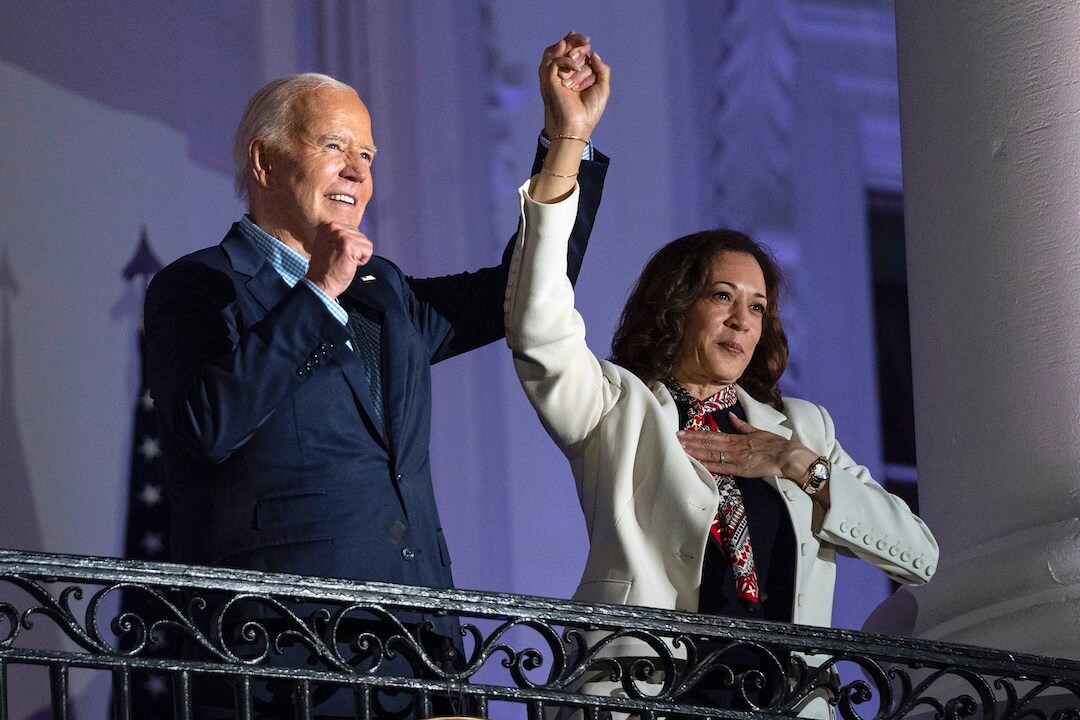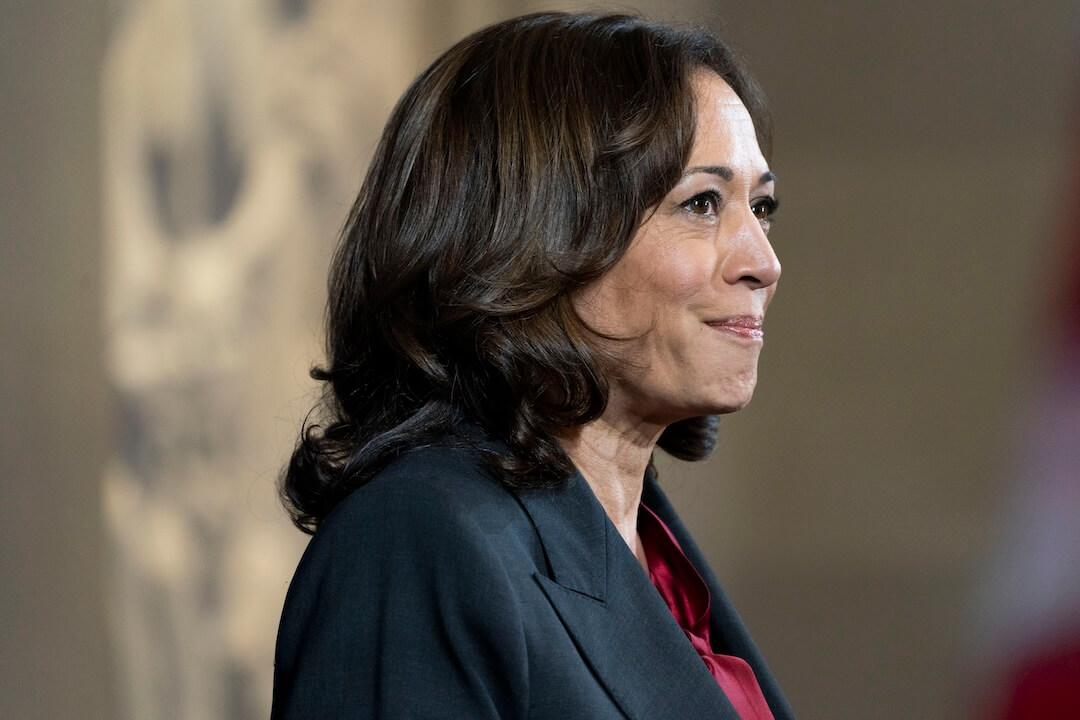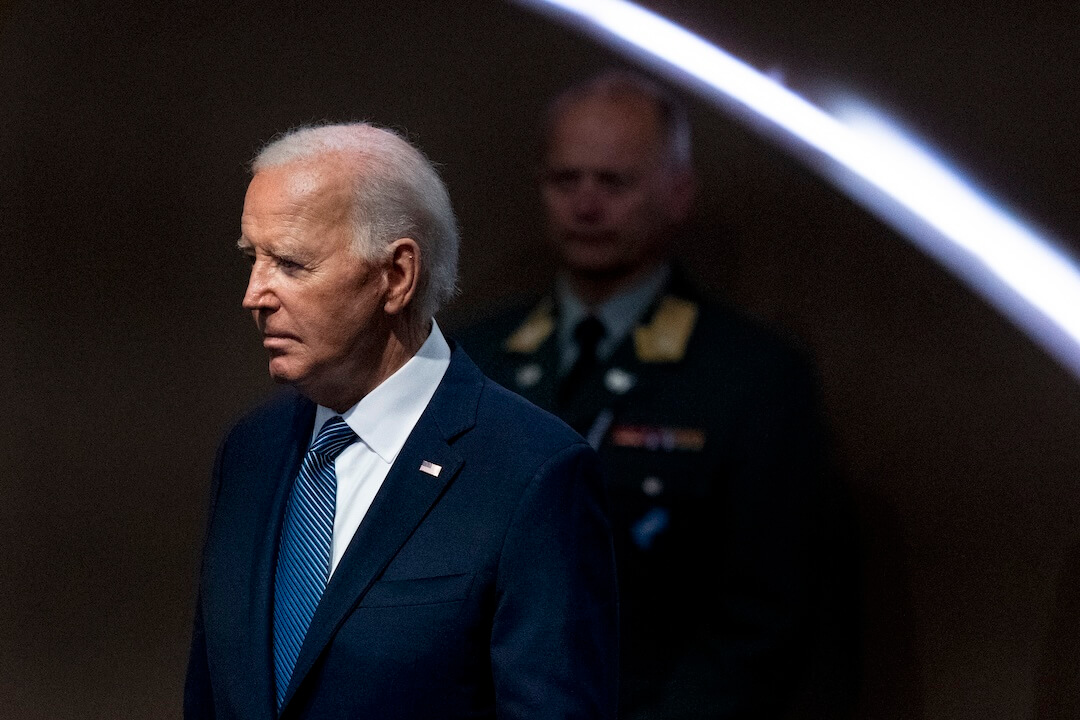President Joe Biden’s decision to forgo the 2024 president nomination and endorse Vice President Kamala Harris unleashes unprecedented questions about how Democrats will choose their nominee.
Biden’s move follows weeks of Democratic drum-beating for him to bow out after his poor June 27 presidential debate performance and less than three days after the Republicans completed their convention in Milwaukee. Former President Donald Trump has been generally leading Biden by modest but consistent amounts in polls, including in key swing states needed to assemble an Electoral College majority.
Biden’s clear endorsement of Harris should carry significant weight with the delegates who will cast the formal votes for the nomination, either before or during the Democrats’ convention, running Aug. 19-22 in Chicago.
Another sign of coalescing support would be widespread endorsements of Harris by elected Democrats, including lawmakers and governors. Already, former President Bill Clinton and former Democratic presidential nominee Hillary Clinton have endorsed Harris. Former President Barack Obama praised Biden’s move but did not immediately endorse Harris.
Here are questions and answers about how the next presidential and vice presidential nominees will be selected and what could become of Biden’s campaign cash.
How will the Democratic presidential nominee be chosen now?
When voters cast ballots during the Democratic primary season, they were technically choosing delegates for a candidate. The delegates allocated will formally decide the successor as nominee during the Democratic convention.
There are about 4,000 regular Democratic delegates earned from primary results and more than 700 “superdelegates” consisting of party officers and elected officials. If the primary season ended with a relatively close contest, the superdelegates would not be able to vote on the convention’s first ballot. But the Democratic National Committee has determined that Biden had enough delegates to win on the first ballot, meaning superdelegates may vote on the first ballot.
By party rules, Biden’s departure does not change that determination, said Josh Putnam, a political scientist specializing in delegate selection rules and founder of the political consulting company FHQ Strategies LLC.
“The convention delegates can change that, but superdelegates would be among the pool of voters making that decision,” Putnam told PolitiFact.
If one candidate secures a majority, he or she would get the nomination.
The rules allow for delegates to vote their consciences, but because these delegates are almost entirely pledged to Biden, his endorsement of Harris should carry significant weight, experts said.
Biden’s quick Harris endorsement may even be enough to keep alternative contenders from seeking the nomination.
How about the Democratic vice presidential nominee?
There will need to be a separate contest to select the vice presidential nominee. If Harris quickly becomes the nominee-in-waiting, Democrats would likely defer to her (and Biden) on the running mate selection, just as Trump had a free hand in choosing the Republican running mate, Ohio Sen. J.D. Vance. If she doesn’t consolidate support, the VP slot could become something she uses as a bargaining chip with delegates who prefer a different nominee.
Either way, the same delegate voting system holds for the vice presidential nomination as it does for the presidential nomination.
Because running mates can’t hail from the same state, Gavin Newsom, California’s Democratic governor, would face an obstacle if he were to share the ticket with Harris, a fellow Californian; that poses a problem for securing the Electoral College votes of the nation’s largest blue state.
Is this late substitution a problem for the next nominee’s ballot access?
Assuming the nominations for president and vice president are formalized before or during the convention, there should be no problems, experts told PolitiFact.
The National Task Force on Election Crises, a bipartisan group of election law experts, academics and former officials, called state ballot access laws “no obstacle” for a nominee other than Biden in a statement.
“The ballot line belongs to the Democratic Party — it does not belong to Joe Biden,” said New York University law professor Richard Pildes. “So as long as the party nominates its candidate by the end of the dates scheduled for the convention, there is no issue.”
Deadlines for ballots vary by state, but generally fall in late August or early September.
- In Wisconsin, the Democratic Party has until Sept. 3 to certify its nominees’ names to state officials.
- A Michigan secretary of state spokesperson told PolitiFact that the state Democratic Party has one business day after it convenes Aug. 24, the Saturday after the convention, to provide nominee information.
- In North Carolina, there is no statutory deadline for names to go on the ballot but state officials generally tell political parties to provide names by mid-August. County boards of elections are scheduled to begin mailing absentee ballots to voters who requested them Sept. 6.
- In Arizona, the deadline for the political committees to file a presidential candidate’s name is Aug. 25.
Even before concerns arose about Biden’s candidacy, the Democratic National Committee had been planning to formally nominate a candidate before the convention, given concern that an Ohio law could block a nomination formalized that late. The Ohio law was later changed. However, during a DNC rules committee meeting July 19, officials discussed other states that have deadlines that are close, falling during the week of the convention, including California, Montana, Oklahoma, Virginia and Washington.
It’s unclear now whether the Democrats will formalize the nomination before or during the convention.
What does the shift mean for Biden’s campaign finance account?
Under Federal Election Commission rules, Harris would have an easier time inheriting the $84 million-plus in funds currently held by the Biden-Harris campaign.
“Because Biden and Harris share a campaign committee, the vice president and her running mate can continue using the campaign’s existing funds for the general election if she is on the Democratic ticket as either the presidential or vice-presidential nominee,” Trevor Potter, founder and president of Campaign Legal Center, a group specializing in campaign finance issues, said in a statement.
If Harris is not on the new ticket, the money transfer gets more complicated, Potter said.
A committee such as the one for the Biden-Harris campaign can transfer only up to $2,000 from candidate to candidate per election. Beyond that, the Biden-Harris accounts can offer to refund donors or transfer funds to the national Democratic Party or state parties. FEC rules also permit the party committees to spend some funds in coordination with the eventual presidential nominee.
Some $150 million in other funds are already in accounts that shouldn’t be affected by a candidate switch.
This fact check was originally published by PolitiFact, which is part of the Poynter Institute. See the sources for this fact check here.







Great breakdown of Biden’s endorsement of Kamala Harris! It’s crucial to get the facts straight on these political moves. Appreciate the clarity and insight here—keeps us all well-informed!